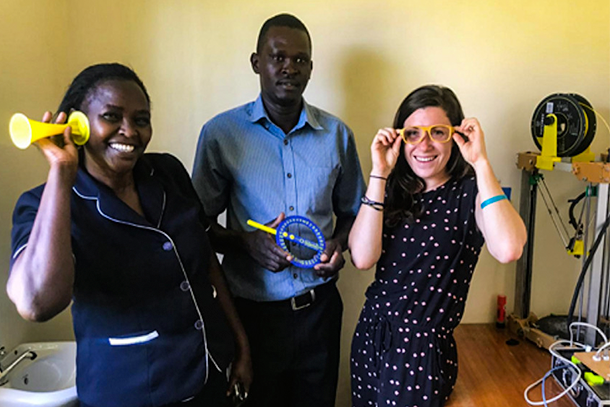“Our customers are health care facilities that don’t have access to the supply chains they need and over 40 percent don’t have the equipment needed to treat their patients. We bring the ability to locally manufacture what they
Along with co-founder Benjamin Savonen, a doctoral candidate in mechanical engineering, and other students who joined the team along the way, Gershenson grew and developed the idea with the help a number of entrepreneurial support programs at Penn State. The first was the Penn State Humanitarian Engineering and Social Entrepreneurship program, which challenges students and faculty to create technology-based solutions that will directly impact people in lower-income communities around the world, and then to develop sustainable business models to deliver these technologies to the people.
The Kijenzi team also participated in the Ben Franklin Technology Center’s TechCelerator program, a partnership with Invent Penn State that offers startups business support and entrepreneurial resources all in one location.
“The TechCelerator gave us the time and feedback we needed to craft the story of Kijenzi in such a way that everyone could understand what we are doing,” said Gershenson.
Kijenzi venture brings 3D printing to rural Kenya
The Kijenzi venture team is using Penn State knowledge and expertise to bring 3D printing to rural Kenyan health care facilities. 3D printing can help these facilities manufacture hard-to-get items like anatomical models, replacement parts, and occupational therapy devices.



